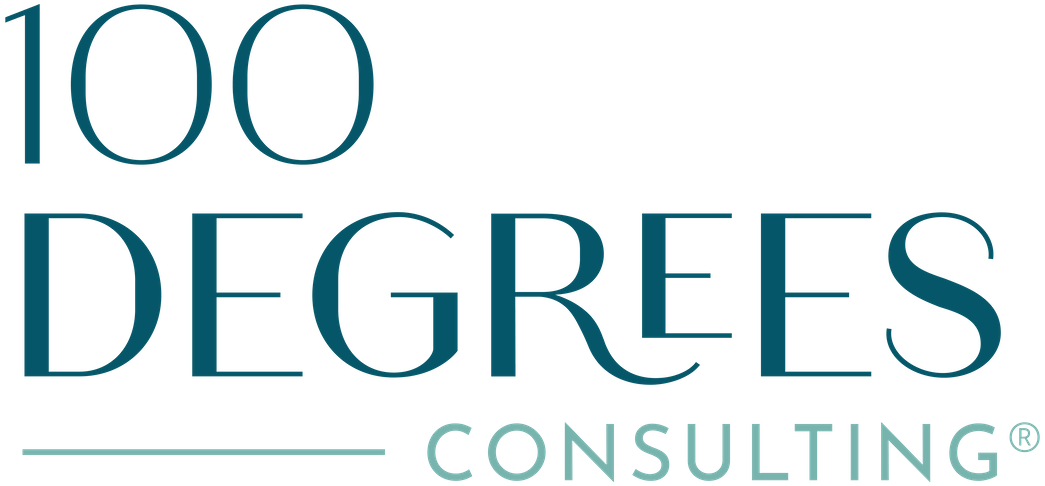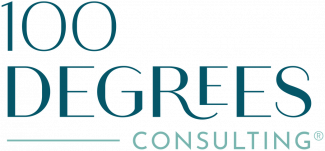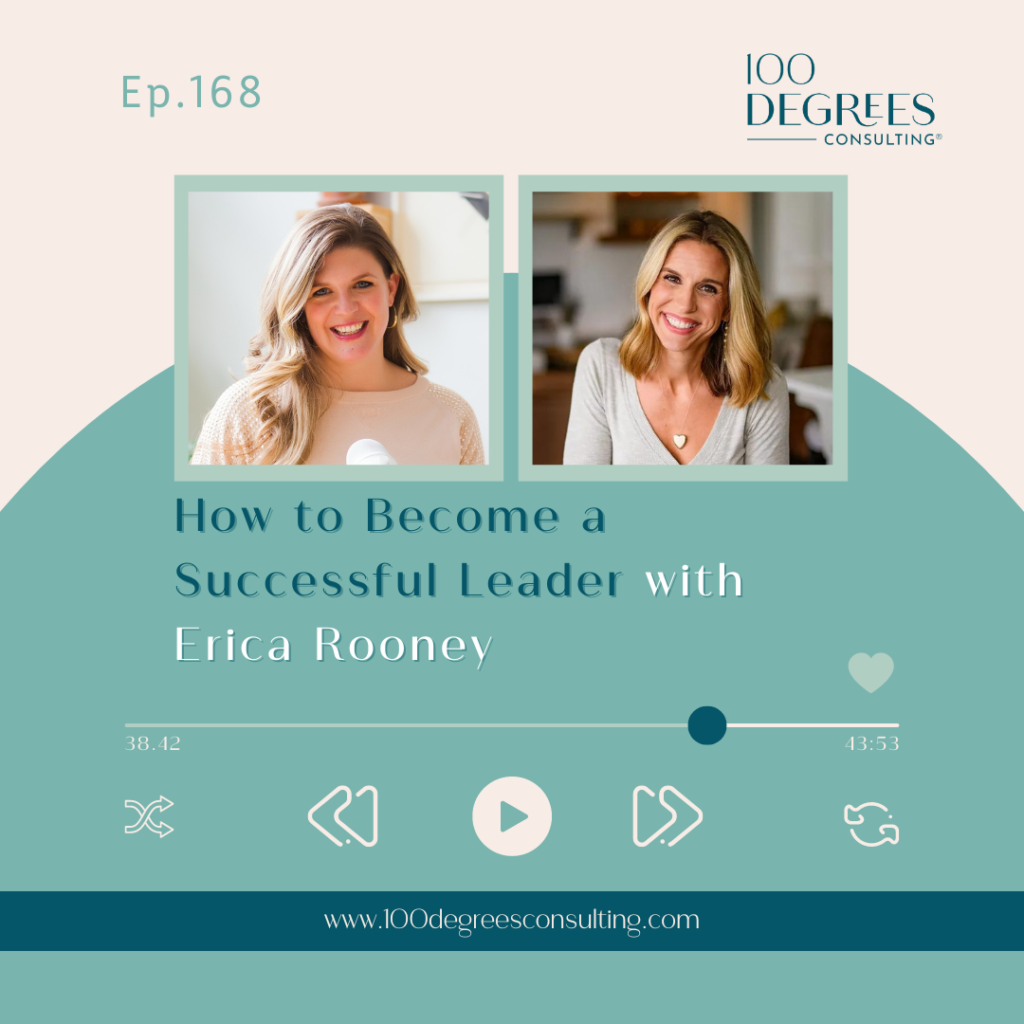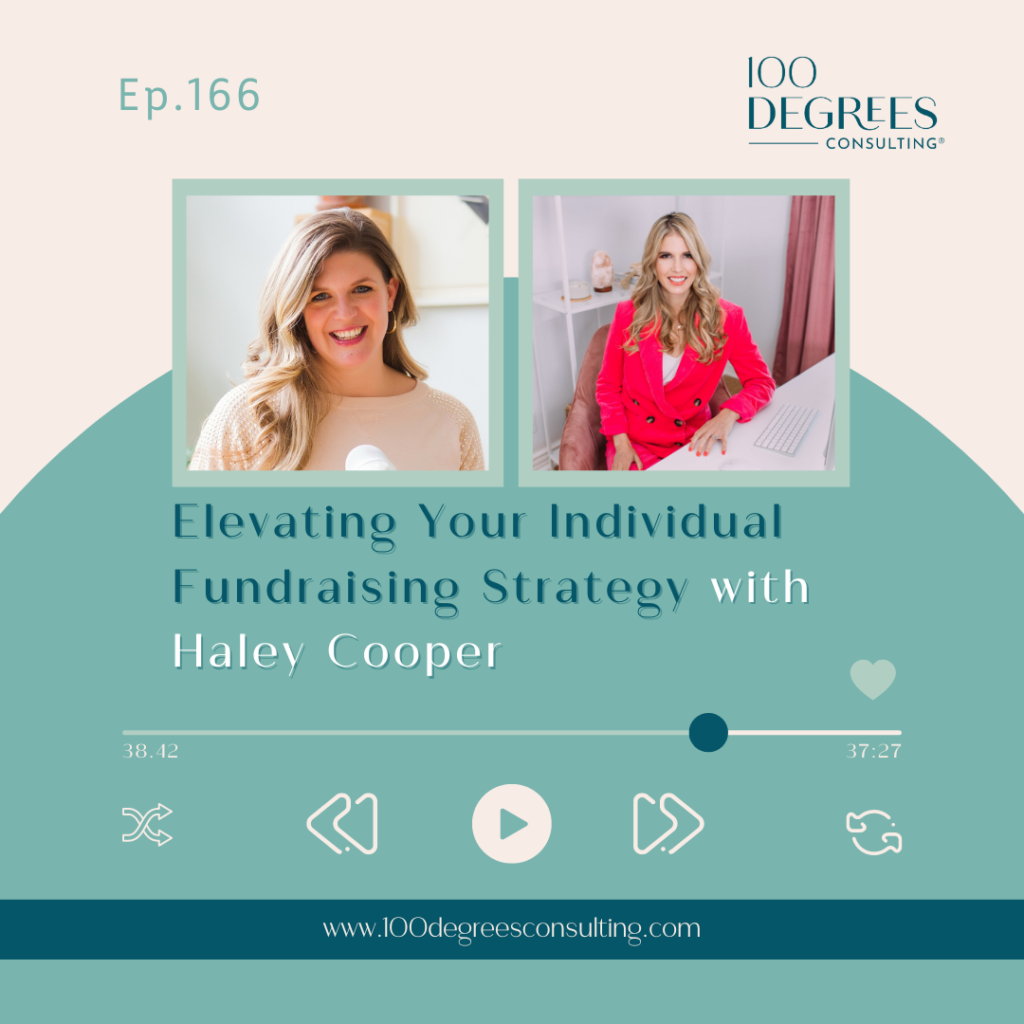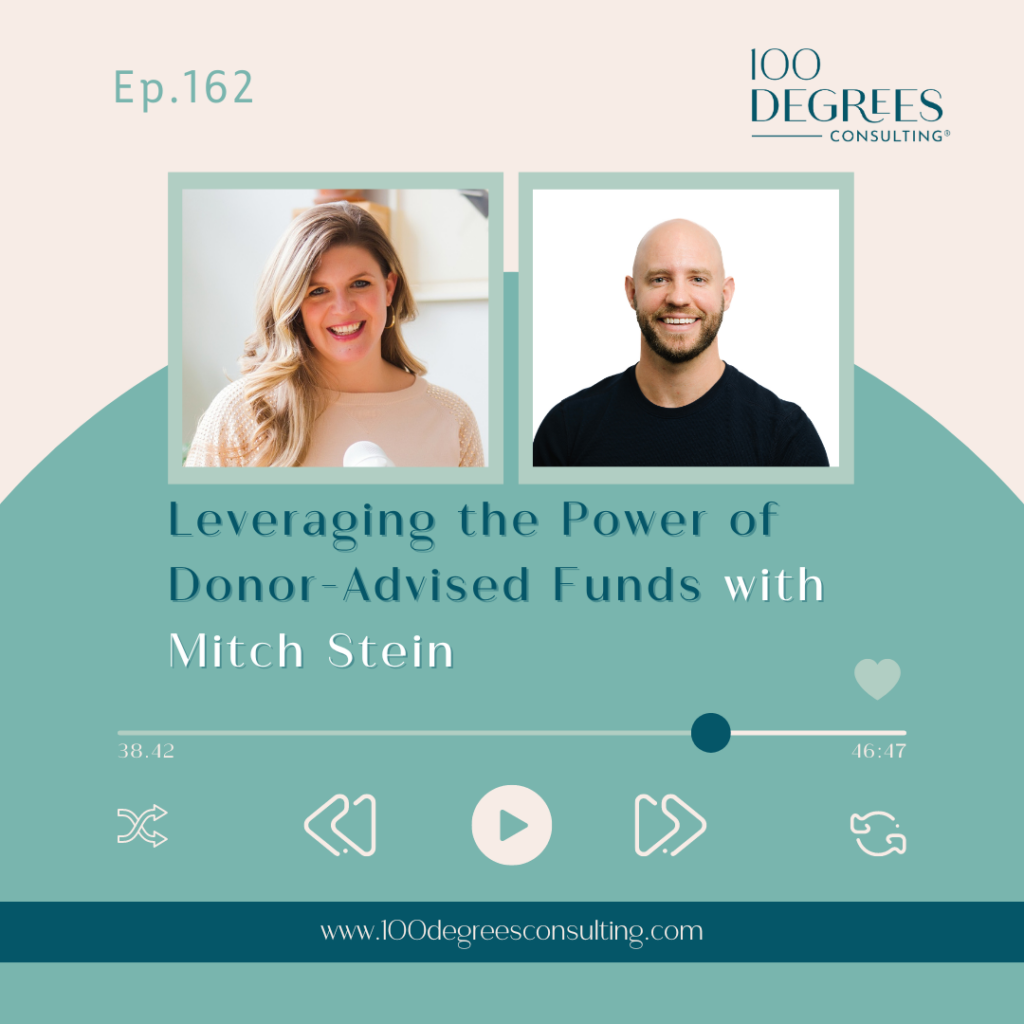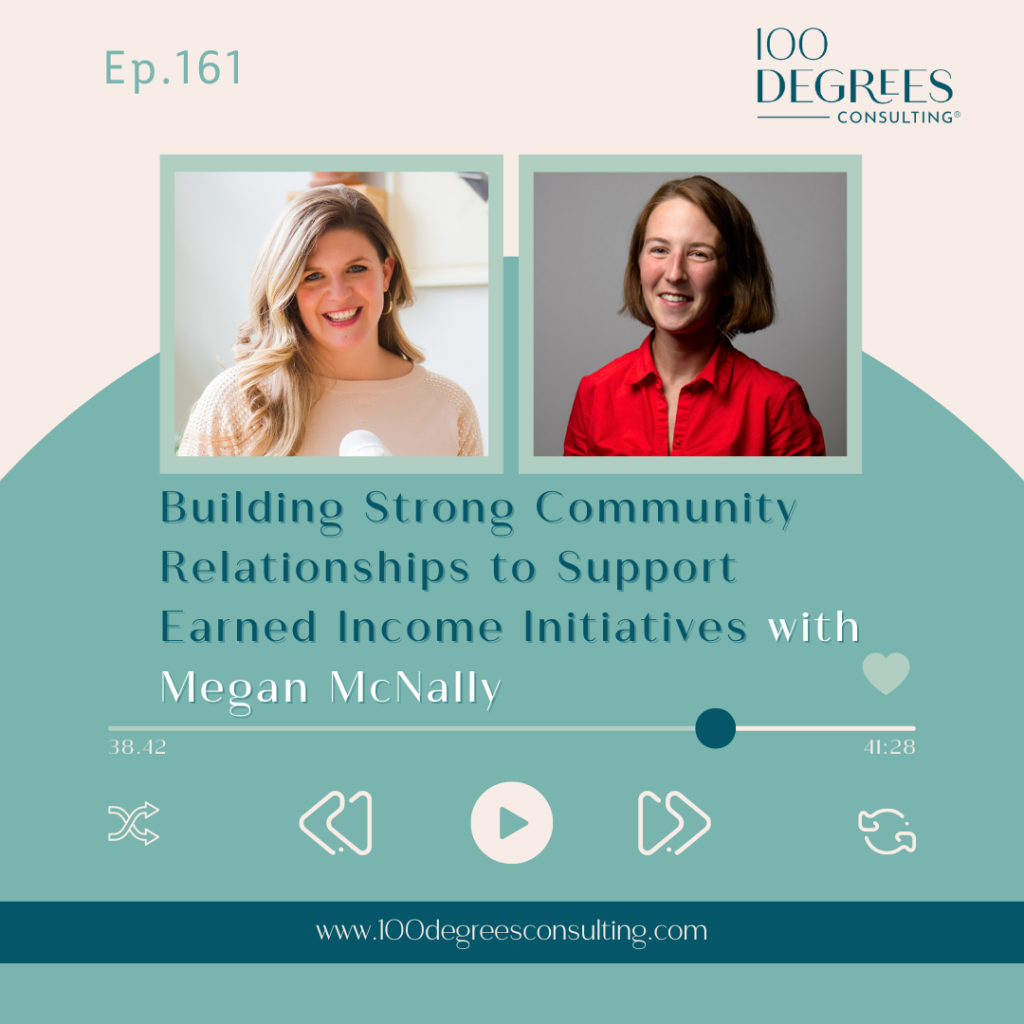Transcript Episode 25: The Four Elements of a Personal Brand with Mike Kim
Transcript Episode 25
Stephanie Skryzowski:
Welcome to the 100 Degrees of Entrepreneurship podcast, the show for purpose driven entrepreneurs who want to get inspired to step outside of your comfort zone, expand it to your purpose and grow your business in a big way.
I’m your host, Stephanie Skryzowski, a globe-trotting CFO whose mission is to empower leaders to better understand their numbers, to grow their impact and their income. Let’s dive in.
Hi, friends. Welcome back to 100 Degrees of Entrepreneurship podcast. I’m your host, Stephanie Skryzowski. And today, I have Mike Kim on the podcast. Mike is a brand strategist for business thought leaders, coaches, and authors who want to create impact with their ideas and get their message heard. Mike’s refreshing approach has made him a sought after speaker, online educator and consultant for top thought leaders.
Mike’s clients include New York Times bestselling authors and other experts featured on PBS, Ted, CNN and Fox. Mike has been featured in and written for Inc., Entrepreneur and the Huffington Post. Mike is the author of the bestselling book, You Are The Brand: The 8-Step Blueprint to Showcase Your Unique Expertise and Build a Highly Profitable, Personally Fulfilling Business.
He’s also host of the top rated and ranked podcast, The Brand You Podcast. He’s spoken at industry leading events, including Social Media Marketing World, Tribe Conference, and Podcast Movement. He’s been a guest on leading podcasts like Smart Passive Income, Marketing Made Simple and Read to Lead. He lives in Alexandria, Virginia.
And I’m really excited to have Mike here because as I will mention, once I get Mike here on recording, that in the course of my business, I have listened to different podcasts and followed along with different entrepreneurs. And there have been times in my business where I felt like there is just too much noise. I’m listening to too many voices. And all the voices that I’m listening to are just saying the same thing. All the marketing people are just saying the same thing.
And so I’ve gone through periods where I’ve unfollowed. I’ve just unfollowed all of the business leaders. I’ve unsubscribed to all of the business podcasts because I just can’t take it anymore. But Mike’s is one that has stood the test of time. So I’ve been following along with Mike for a while. He’s actually a bit of a mentor of mine. I was in his mastermind this year.
And I’m just really excited to share with you this conversation. I took notes because he tells us really what building a personal brand actually means. And it’s not what you think. Right? It has nothing to do with how many followers you have on Instagram or being an influencer or anything like that when you think of personal brand. So he breaks down the four components of a personal brand. And I just had a couple of light bulb moments in here. Those are my favorite podcast episodes when I’m like, “Oh my gosh,” and I learn something totally new.
So we talk about his journey and the different road bumps that he has gone through to get to where he is now. And I’m just really excited to share, and for you all to learn a little bit more about personal branding with Mike Kim. So let’s dive in.
Hey, everybody. Welcome back to 100 Degrees of Entrepreneurship. I am super excited to be here today with Mike Kim. Mike, welcome.
Mike Kim:
Hi, Steph. So it’s great to be here. And to everyone listening in, I’m glad to be here with you.
Stephanie Skryzowski:
So I love to share a little bit about how we know each other. And first of all, I was part of your mastermind this year, which I just absolutely loved, but I’ve been following along with you online for many years now. And that sounds slightly stalkery and creepy. But when I have cut things out of social media and out of podcasts, because I’m just tired of the same people saying the same things over and over again, your podcast and your social media, you are one person that I have followed throughout my business journey. And I think it’s because you’re very genuine and you do things your way and it works. And I really appreciate that about you. So yeah, so I’ve known you for a while, I feel like.
Mike Kim:
Oh, I’m flattered. And of course, we both know Sean, obviously, [Pritzkau 00:04:13].
Stephanie Skryzowski:
Yes.
Mike Kim:
But I’m flattered. Thank you for that. I never take it weird when people say that, because that’s what the online space allows us to do. Right? It allows us to connect and get to know people a little bit over time through little pieces of content here and there.
And I’ve done it my own way, but there are some principles I’ve found along the way that have really helped me in marketing my business and doing so for a number of years now. So life’s hard enough as it is. And we try to make stuff easy for people.
Stephanie Skryzowski:
Yes. I’m really excited to talk a little bit more about that in a second, because I think that just what I said about how I’ve followed you and I just have really liked just learning from you over the years. I think that says a lot about how you have built your own personal brand, and what about that has attracted your followers, your audience, your readers, and your listeners to your podcast. So I definitely want to talk about that and what you’ve done to set yourself apart.
But first, I want to hear about your business journey and your journey in general. How did you land where you are now and what are you doing now?
Mike Kim:
Yeah, so what I do now is I basically help folks who want to start or grow an expert business – market themselves better. And if I were to explain this to my six year old nephew and he was like, “Hey, Uncle Mike, what do you do? Like, what’s your job?” I would tell him, “I help business owners make more sales by writing better.” And that’s really at the bottomline what I do.
Now, where do they write social media? Where do they write YouTube videos? Where do they write podcasts? You name it. There are a million places where you can get your message out these days. But essentially, I help people find the words to describe what they do, and in that create an identity in the marketplace, which is a brand. Branding is all about identity.
And when I started, Stephanie, if you look at my LinkedIn profile, it looks like I have career ADHD, if you will. I spent a number of years as the music director for a church in Connecticut, four years there. Prior to that, I taught SATs for high school kids. And after that, I took a marketing job as the CMO of the same company where I used to teach SATs. So I’m all over the place. How did you get into this or that?
And what I found was that there were skills and experiences that I had that were threads that tied my whole journey together. And when I stepped away from the music director position, I just needed an outlet to share my thoughts. I no longer did that. I no longer was doing music. I was no longer speaking. So I started blogging in 2013 as a side thing, just having a creative outlet. That’s when I landed this marketing job.
And from 2013 to 2014, about a year and a half, two years, I really started to learn how to share content online in an engaging way. It was very different from academic writing. It was very different from the writing that I talked to SAT kids. And through that I’ve earned and learned to develop these skills in blogging and podcasting that helped me grow an audience.
And after two years, it got to the point, two and a half years, that the audience was large enough that I took a chance. I launched the coaching program. It filled up because I had a decent size audience at the time. And I was able to go full-time in teaching marketing to solopreneurs and small business owners. And that was a lot of fun. It was very rewarding for me.
I always felt like while I was grateful for my job, that I was able to do more for people than just one company. I was able to help more than just one person. And I liked that. I liked going in and out. I liked just helping people get through a certain phase and then boom, let them run on their own. And it just really worked out that way. And it was just the magic of the internet and learning that helped me launch this business that I’ve been in for now, like six years or so, six, seven years.
Stephanie Skryzowski:
Yeah. What were you blogging about in 2013? Like life or marketing stuff or…
Mike Kim:
Everything.
Stephanie Skryzowski:
Everything.
Mike Kim:
Everything. Yeah. So that was like one of those in-between intergrade periods, right, where you’re between the caterpillar and the butterfly. It’s that in-between period. And I was trying to find what my voice was. I was trying to find my passion. I was very confused in terms of what path do I go down? Do I stay in this ministry world that I didn’t… I wasn’t really quite sure I totally believed in any more in that model of doing things, or do I go down this road of sharing what I’m learning at work and the things that I’m doing marketing-wise there?
And a lot of people will ask, “Well, how’d you get a marketing job if you had no other previous experience in marketing?” I had a ton of experience in marketing, it just wasn’t called marketing. I’d recorded music albums, I’d launched conferences all while I was at that church job. When I was working at the after-school academy, we were always promoting events week after week, open houses and promotional events for prospective students to come to. So I realized, I knew a lot more about it than I realized. Writing was really my thing.
So when I started this blogging, I was writing about books that I was reading. I was writing about things that I was learning. I was writing about some self-development stuff. I was writing about some marketing stuff. And I remember, folks close to me would email me or text me. And they were like, “What are you doing?” And I remember that, because they weren’t totally on board with it. And I was like, “Go away. You’re a part of my past life. If you don’t want to follow me into what I’m doing, then forget it.” And I remember feeling that and it felt very alone. And so in that I tried to find communities that I could join.
And one guy was a guy named Michael Hyatt and he had a blogging course and I joined it. And there were a bunch of other people who were trying to do the same thing I was. And that’s where I met some of my very first friends online. It just snowballed from there.
Stephanie Skryzowski:
I would imagine that leaving one world that you were a part of and the job and the community and everything that came along with that and moving into this blogging, and then taking an even bigger leap to move into coaching, for a lot of people, I feel like that would be pretty far outside of our comfort zone, from going from something that came naturally, it was easy to doing something. How did you push yourself to actually take that leap and make that big change?
Mike Kim:
Yeah, it was a gradual process, but like I mentioned before, I’d realized that I had a lot of skills that carried over from previous jobs that I had. Coaching was not super new to me. I had mentored a lot of people, albeit informally. So once I started reading some books on coaching, I took some coaching training. I got certified. And I learned some things there. I was like, “Oh, okay, I get this.” So yeah, I invested my own skillset quite a bit. But I realized it wasn’t totally new to me.
Online communication, public speaking, this is stuff that I had done quite a bit of at church. I mean, most people in corporate America, they don’t stand on a stage in front of hundreds of people every weekend and play music. So there were a lot of things that I was pretty comfortable with or that weren’t as big of a jump as they would for somebody else. So I view those as advantages. I was like, “Hey, this is great, wonderful.”
Where I was nervous was really the content I was sharing. I was like, “I don’t know that much about marketing. I mean, I know some things that are intuitive to me, but I don’t know that much that I could teach this stuff.” And so I would read a lot of books. I would synthesize the information. I would apply it to my own business. And then I would share what I learned, or I would apply it to the company I was working for and I would share what I learned. And that’s how I started to get my legs under me and start to really, really get to learn this materials, like figure out how it made sense to me. And then I would teach that. And if it made sense to people, I would keep it. If it didn’t, I would refine it. And so it was a very slow step-by-step process.
And you know what? It was just fun. It was fun to do. It was new. It was different. It felt like it was leading me into a new phase of my life. And I wanted to shed the old skin, like the cocoon analogy. And it was a lot of fun. It definitely made me anxious sometimes, but it was worth it. It was just more fun.
Stephanie Skryzowski:
Yeah. I really like how you thought critically about your past experience and were able to pull little pieces out to give you that confidence. And I feel like a lot of times we forget stuff that we’ve done before. And wait a second, for you, okay, actually public speaking or being on a stage, this is not new to me. It’s a different context. It’s a different environment. I’m talking about different things. It’s different content. But the actual skillset is there.
And so for our listeners, if anyone is listening and on the precipice of making a leap, but feeling really nervous about it, I think that’s a great thing to think about. Like, what in your past has led you to this moment? And I really like how you threaded all of those experiences together, and then supplemented what you didn’t necessarily have with community, with learning, with education, with refining. I think that’s great. That’s such a good takeaway for anybody who’s looking to make any type of move like that.
I would love to talk about personal brand. This is your expertise. And this is something that you talk about, you’ve written a book about. So how do you help brands or businesses or leaders find clarity about what to say in their messaging? How do you help businesses or people develop a personal brand? What does that even really mean?
Mike Kim:
Yeah. I think you hit it right on the head. It’s hard to sell something when you’re not sure what to say. And that’s really where foundationally I start. Now, this phrase personal branding has seeped its way into every nook and cranny of the professional world now. It’s all in corporate now. Companies are doing trainings on this now.
And branding has just always been about identity. It’s like the farmers used to brand a mark onto their livestock. When I was doing the research for the book, I came across this man named Josiah Wedgwood. He was born in the 1700s. He was an English potter. And he entered a pottery competition hosted by Queen Charlotte. He won. And after that, he started calling all of his pottery Queensware. Pretty brilliant, right? And he came up with these concepts of money-back guarantees and free delivery. He’s the guy that came up with this stuff.
Now, whether it’s pottery or livestock or a company we trust, it’s all about identity. It’s a shirt until you put a Nike swoosh on it, then it becomes a Nike shirt. Right? So when we talk about personal branding, it just expands that definition of identity to include our ideas, our expertise, our reputation, and our personality. There are people who teach similar ideas to me. There are people who have similar expertise, but some folks will choose me over someone else or vice versa simply because of our personality.
I just saw a friend of mine post today on his Instagram. He’s got a good sized following and he’s promoting something called Build Your Own Brand. And he endorsed my book. Now, there is a part of me that could say, “Dude, that’s messed up. How could you be launching this the same week my book comes out?” But I don’t mind because it’s based on his personality. That’s something I can’t compete with. His tribe, his audience loves him because of who he is. Mine loves me because of who I am. It doesn’t mean we can’t collaborate with one another. He did endorse my book. He’s had me on his podcast. He’s been on mine, on and on it goes.
And so a personal brand is really focusing on those four things, your ideas, your expertise, your reputation, your personality. And that confluence of things, whether prospects realize it or not, are why they pick you. It’s why they choose you. And it can come down to something as granular as image or your family situation.
This is a funny thing, I don’t get to talk about this a lot, back in 2016, really, when I first started going full bore in my business, if you looked at my buyers list and the people who were following me at that time, you would’ve been surprised, Stephanie, I think in that most of them were 10 to 15 years older than me. And I was in my mid thirties. So I thought I’d be speaking to a younger crowd.
Stephanie Skryzowski:
Yeah.
Mike Kim:
Okay. And as time went on, during that four or five-year window, I went through some personal changes. I went through a divorce and all this stuff. And so I started traveling a lot more and just living my life as a single dude. My followers changed. They all became around my age or younger. And they were like, “I want to do what that guy’s doing. Like he’s just living his best life.” And the older people were like, “Oh, he’s not that relevant to us anymore. He doesn’t have a family. He doesn’t have kids. He’s not even married anymore. He’s traveling all the time. Like I can’t really [inaudible 00:17:44].” And that didn’t bother me. It’s just funny though, to see that phenomenon. It has nothing to do with my ideas or my expertise even in that point.
Stephanie Skryzowski:
Yeah.
Mike Kim:
It had to do with how I was living or what my personality was being communicated as. And so that’s the beauty and the power and also sometimes the headache of personal branding. It really is an extension of you. And that’s why I called the book You Are the Brand, because that’s what it is, you.
Stephanie Skryzowski:
I think that’s really interesting because it helps. Like, how you mentioned the example of the person that has endorsed your book and now has what seems like a competing, and I’m using air quotes, or a similar type course or product, is it almost eliminates this feeling of competition. I mean, I feel like maybe you’d still be like, “I don’t want to live like that. That kind of sucks.” But nobody can compete with your personality. Your personality is your personality.
So I’ve had situations before where I’m like, “Oh, that person is kind of doing like something similar to me. That doesn’t feel very good.” But when you think about it like that, and you break down the ideas, expertise, reputation, and personality, well, nobody is me. So if they want somebody with a different personality, then they’re going to be better suited to go work with that person anyway. I really liked that. I never really thought about that before.
Mike Kim:
Yeah. And it’s kind of what you just said a few minutes ago. You were like, “Hey, I’ve been following you online for a while. When I cut things out, I just kept listening to some of your stuff.” And you were saying, “You just had this way of making things easy.” And there is certain things that you said about me at the start of our talk today, and that’s exactly what I’m talking about. That’s what makes you a personal brand. This guy, a great guy, a very different life.
I’m a business strategist. I still take the occasional client contract. I like that. It keeps me sharp. So people know this about me. So a lot of people who end up working with me are actual business owners. They’re not just starting out a side hustle. They have businesses and they have the capital and they have the revenue to invest in certain things. And they’re like, “I like what Mike has done for his clients. I like the clients he’s worked with. That’s kind of who I’m emulating.” Whereas, other people are just bloggers and YouTubers. Nothing wrong with that, but that’s their group, that’s their audience. And it’s just so different. It just depends on so many different factors.
And so I always say, “It’s like trying to nail down jello. We are fluid. But if you can build some concrete things, even in that structure, you can keep jello. And you can maintain your flexibility and your fluidity.” The things that drive me today are very different than what drove me when I first stepped out on my own. I’ve had to always go through these various seasons about thinking about what do I want to do and why am I doing it? And it doesn’t stay the same.
Stephanie Skryzowski:
You hear me talk all the time about how important it is to know your numbers as a business owner, but you may be thinking, “Well, how in the world do I do that? Where do I even begin?” So I have a free resource for you. The Profit Playbook is an amazing template that you spend about 15 minutes getting it all set up and you can literally see into the future of your business, revenue, expenses, cashflow just like a crystal ball. It is a huge resource that will absolutely help you create a roadmap to reach your goals in your business. It is for free over at 100degreesconsulting.com/profit.
Is it enough to just be yourself, again, I’m using air quotes, to be yourself online, and then that is your personal brand? Or are there things that business leaders or business owners… Are there things we need to actively do to build our personal brands?
Mike Kim:
I see people build brands these days in one of two ways and neither of these really work. Okay. So both of these don’t work. There is probably a third way that’s better, which I’ll share in a moment. But on one hand, you have people who are presenting a false version of themselves. I mean, they’re just flat out lying. They lie about how much money they make. They rent an Airbnb, a mansion on Airbnb and they take photos and they imply that it’s their house. And these people act like attention is owed instead of earned. You have to earn it. Right?
Then you have the flip side of that, and another extreme example, but these are people who are oversharing things in the name of authenticity. That’s a big word, authenticity. And they’re oversharing things. And what I mean by that is they’re selling their struggles and not any kind of solution. A great example of this is when you sometimes scroll through Facebook, which is the worst, I don’t know why people do this on Facebook and no other platform.
Stephanie Skryzowski:
Yeah.
Mike Kim:
They’ll take a picture of their nasty foot and some huge cut on their nasty, hairy, flaky foot, or their knee, or any other injury they’ve had, or some skin rash and throw it up on Facebook. And I’m like, “Well, what are you doing? Nobody wants to see that.”
In all seriousness, what’s happening psychologically is they want this attention. Look at me, someone hit the like button, someone hit the heart button, someone hit the hug button emoji. And they want attention that way. And you could be online at Starbucks waiting for your coffee, scroll through Facebook just to kill some time, and then you see this nasty photo and you’re like, “That’s disgusting. Come on.”
Stephanie Skryzowski:
Yeah.
Mike Kim:
I don’t care if it’s my own mother, I will block them. Literally, I will mute them or block them. If I don’t know them, I’m going to definitely blocked them.
Stephanie Skryzowski:
Right.
Mike Kim:
Because I don’t need to see that. And in another level of seriousness, what if that’s a trigger to somebody? You don’t know. You want to post a picture of your car accident, really. What if a bunch of people who follow you on Facebook lost a loved one to a car accident or was in a really bad car… Congratulations, you’ve just triggered a bunch of people because you didn’t have the maturity to stay quiet and keep things in-house that needs to stay in-house.
Stephanie Skryzowski:
Yeah.
Mike Kim:
Right? And so you see people do this one of two ways and they’re selling their struggles instead of a solution. And it’s like a car wreck. They get this attention, but nobody stays. Nobody wants to get to know more. They might say, “Hey, I’m so sorry for your loss.” And that’s it. You can’t do anything more with that.
So the litmus test question that I share with everybody is, ask yourself, the stuff that you’re sharing online to build your brand, whatever it is, yourself, your company, your small business, can I build a campfire around it? By that I mean, is it warm? Is it inviting? Is it life-giving? Is it a light in the darkness? Is it a place where people can share stories? What happens at campfires? Community gathers. Are you a person that people want to hang out with at a campfire or are people like, “Peace out. Sorry, I’m passing?”
Stephanie Skryzowski:
Yeah.
Mike Kim:
And when you look at the best quote, unquote, brands, personal brands, they have all done this, whether they realize it or not. They have become someone that people want to be around. They’ve built a community that’s like a campfire, that’s based on a cause that people want to share stories around, rally around and be together with. Now, it doesn’t mean every cause is good, but that’s really what they’ve done. Psychologically, that’s what they’ve done.
You can look at political parties, it’s the same deal. Religion and online followings, it’s all the same phenomena. You’ve attracted a group of people because it’s a place to share stories and build community. And you are someone who people want to be around. You are the brand. And so when a lot of folks ask me, “Well, what’s appropriate to share?” That’s completely up to you. But that is a litmus test that I have found that really works well.
Stephanie Skryzowski:
Yeah. And thinking about the campfire analogy, I mean, there are some pretty deep conversations that can happen around a campfire. So a campfire can be a place of vulnerability and of the buzzword authenticity, but it’s not a place where you’re showing your stitches that you just got from falling down a cliff or something. That’s not what you’re doing around a campfire. But I like that analogy a lot and really thinking about, am I someone that people want to be around?
How do you balance that with this needing to be liked and needing the thumbs up or the hearts on Instagram, this needing to be liked with wanting to be someone that people want to be around?
Mike Kim:
I think that being liked versus being somebody that people want to be around is different. There are people I like, or I don’t mind them. I don’t always want to be around them. There are other people that I don’t necessarily like, but I need to be around them for a season. So that might be a coach or an expert. And they definitely have some sort of knowledge, ideas, or expertise and a reputation. I don’t like their personality, but I can get in and get out. When I think about just what I share on social media, if I’m asking myself that question, can I build a campfire around it, it really actually opens it up rather than confines what you can share.
A good example, a few weeks ago, when I got my author copies of my book, I got to show it to my mother. And she does not like to be on camera, but I gave her a copy and I just filmed her. Now, there is no takeaway. There is no value bomb of branding information in that video. I’m just showing her looking at the book and her reaction to it. And I shared it on social media. It gets all this response, all this quote unquote engagements. And there is nothing about the book, but it was a campfire moment, because who can’t relate to a mom being proud of her son for doing something as much as writing a book?
And actually, people learned, whether they realize it or not, a lot about me in that little 30 second video. They realized I have a good relationship with my mom. I have a good family. I get along with them very well. They’re very down to earth people. We’re all very down to earth people, I think. They learned that I didn’t do well in high school. She’s like, “You didn’t like studying when you… I can’t believe you wrote a book.” There is a lot in there.
If you want to really dissect what’s happening from a marketing and a branding standpoint, that actually made people say, and they said this on my Facebook feed and my TikTok and my Instagram, “I feel like I’ve gotten to know you better. And I like you better.” They don’t know why. Well, of course I know why. It’s because they saw me interact with my mom, and it was a really positive interaction.
Stephanie Skryzowski:
Yeah.
Mike Kim:
It was a campfire moment. And that might not be enough to get a person to say, “I want to buy that book right now,” but they will associate a positive memory with my book and with me. And then later on, when they see future posts, they might, “You know what, I am going to pick up a copy of that book. I’ve seen him talk about it a lot. And I’ve seen other people talking about it a lot. They seem to like this guy, Mike, I don’t know much about him. Maybe I’ll give it a shot for $15 dollars. It’s not that much money. Let me check it out.”
Next thing you know, they’re reading the book or they might check out a podcast or see more videos. And that relationship is starting to form, all without me even knowing it because I’m trying to be intentional about sharing things that can be life-giving to other people. Do I have my bad days? Do I have days where I skin my knees and my toes? Yeah. But I’m not going to share it.
Stephanie Skryzowski:
Thank you.
Mike Kim:
I’m not going to share it. No one wants to see that.
Stephanie Skryzowski:
I liked that. I really liked that. The campfire analogy, that’s going to stick with me. I really liked that a lot, because like I said, there is a place for vulnerability around a campfire, but not sharing your wounds.
Mike Kim:
Yeah.
Stephanie Skryzowski:
I like that a lot. Tell us a little bit about the book. You have a book launching this week that I’m really excited to get my hands on my copy, but it would probably take you hours to tell me about what the process of writing a book was like, but give us the short version. What’s writing a book like?
Mike Kim:
I have joked with people, “I hated every minute of it, writing it.” Now, I’ve had content for years and people, I think figure, “Oh well, Mike’s a writer. This must be so easy for him. All he has to do is like transcribe a bunch of his podcasts and slap some stuff on it and boom, he’s got a book.” That’s not true, not if you want to write a good book.
Stephanie Skryzowski:
Yeah.
Mike Kim:
Because I’ve read a lot of books like that and they’re bad books. The content is good, but it’s a bad book. What I mean by that is, people who read books expect the content to be laid out a certain way. It needs to make sense. And you don’t want to read a transcript of a podcast. That’s not a book. And when I was writing the book, it was very difficult to re-sort the content, rearrange the order of a lot of things, and also to find stories that really tied everything together.
And that was important because the last couple of years, I’ve primarily spent teaching. I didn’t really have to tell stories around the teaching points because people would come to a workshop or show up to a webinar, and they’d understand what the topic was and I’d just deliver the content, because they knew me already. This was my audience. I very rarely do wide open, publicly advertised webinars. I just speak to my group and I allow them to invite other people to come.
So when I was writing the book, my publisher, my editor, Karen Anderson, was like, “There are people who do not know who you are and they’re going to read this book. You need to give them some context,” so that was difficult. And it was also difficult because I was writing about a pretty emotional time in my life. The book caused me to reopen some old wounds because I was writing about those years when I made these various transitions in my career. I went through a divorce. And it was all those, that whole season of life is what this book entails. It’s when I learned all this stuff in the book.
Stephanie Skryzowski:
Yeah.
Mike Kim:
So going back to revisit a lot of that stuff and tap into the uncertainty I was feeling in my life at the time was tough. But really, at the end of the day, what I tried to ask myself with every chapter was how did I learn this? I say these things, how did I learn it? And that’s when the stories came out and revealed themselves. And so that was really the guiding principle.
Now, I’m going to tell you, it was one thing like… It was like going to the gym. You say you want to do the work, or you say you want the out… You still have to lift the weight. You can’t outsource it. You can’t delegate that.
And so I wrote a lot of the book on my phone, actually, just on Google Docs. I couldn’t stand my laptop. It was during quarantine.
Stephanie Skryzowski:
Yeah.
Mike Kim:
I was on Zoom calls all day. I didn’t like my laptop because I was on it too much.
Stephanie Skryzowski:
Yeah.
Mike Kim:
And so I found other places to go and just click away on my phone. And that’s how I wrote a lot of it.
Stephanie Skryzowski:
Oh my gosh. I love that. “I wrote this book on a phone.” That is pretty crazy. Well, that is super exciting. I can’t wait to dive into it. And I love how you pulled the stories out. I really enjoy writing and speaking as well, but finances like your P & L that’s not exactly a riveting topic that everybody is excited to learn about as much as I am. So I’m always struggling to find a story that ties to some piece of this. And I just wrote it down.
I love how you asked yourself, “How did I learn this?” And I’m sure that there are things that stem farther back in your history and some more recent things. And I love that, that was the way that you were able to pull story into the book. That’s a good lesson for me. Thank you for sharing that.
Mike Kim:
And just to give you a little bit of insight, I remember this one book I read, I don’t remember the title, but I remember Ryan Deiss was the author, Ryan Deiss who founded DigitalMarketer. And he opened the book with a story of how he was on a golf course somewhere and, or something like that, on vacation. And he had a great year in business and his accountant called him and said, “Hey, we miscalculated. You owe like $250,000 in taxes and you’ve got to have it in like two weeks.”
Stephanie Skryzowski:
Yikes.
Mike Kim:
And I remember I read that, and I was like, “Oh my gosh, I’m never going to let that happen to me.” Now, the reason for the story was to show how he was able to pay those taxes because he had an email list and had a digital marketing bent to his business. But that gripped me. And it’s why we see insurance commercials use people. They have spokespeople, spokesmen, spokeswomen. Right? Geico has a gecko, for goodness’ sake. And it’s just personalizing something that most people might find dry or numbers and facts and charts make their eyes glaze over. But you put some personality into it in a story, then it becomes more relatable. It becomes more memorable.
I’ve never forgotten that story that Ryan Deiss told in that book. And I probably read it six years ago. And I was like, “You know what? I’m never going to let that happen to me. And the way that I’m going to prevent that from ever happening to me is to always grow my email list.” And so it just sticks with you. It’s just these things that when you learn the power of storytelling in the right way, it can do so much for your business in order for you to help people. And it’s just so, so important. It’s just how human beings operate.
Stephanie Skryzowski:
I love that. And then those stories become part of your personal brand. I feel like at this point, my origin story basically of the business has become a part of the brand and people know that, because I’ve talked about it a lot and you see it on my website and the podcast and social media. And it becomes just part of this overall story that you tell. I love that. Awesome.
Mike Kim:
It’s so good.
Stephanie Skryzowski:
Well, Mike, thank you so much for joining us today. This was such a good conversation. I feel like I could talk to you for a long time about all this stuff, but we’re going to wrap up. And where can people find you? First of all, You Are The Brand, your book, where can we find that and how can our listeners find you?
Mike Kim:
Yeah, so the book is on every major retailer, Amazon, Barnes & Noble. For the first few weeks of the book’s release, the book release date is July 13th, so depending on when you’re listening to this, the book comes out Tuesday, July 13th, 2021, but for about two weeks, it’ll only be 99 cents on Kindle, if you get the Kindle version. It’s less than a cup of coffee, even at Dunkin Donuts. So you can grab it there. If you want the hard copy, you can order it from Amazon and Barnes & Noble, or directly from my website at youarethebrandbook.com.
And if you want to follow a little bit else of what I’m doing, just tune into my podcast. We’re actually, Stephanie, going through a rebrand of the podcast. We’ll be rebranding it to You Are The Brand to match the book. I’m coming up on 300 podcast episodes. And we felt like that would be a good time-
Stephanie Skryzowski:
Wow!
Mike Kim:
…to change the name of the show. And a little takeaway there, when it comes to this marketing stuff and building a personal brand, consistency is greater than intensity. 300 episodes of a weekly show is a number of years. And so it’s like six years or so that I’ve been podcasting, six, seven years. And we’ll just rebrand that. So if you are interested in getting some more tips along the lines of what I shared today, look me up on Apple Podcasts or any of the other podcasts. Just type in Mike Kim and you’ll find me.
Stephanie Skryzowski:
Awesome. Thank you so much. Yes, your podcast is awesome. And like I said, when I cut all the other noise out of my usual feed, Mike’s podcast was one that remained. So it’s a good one.
So Mike, thank you so much for sharing all of your personal branding wisdom and your story with us today. And congrats on the book release and the 300 plus episodes of the podcast. That’s like hashtag goals for me. We’re at like 30 right now.
Mike Kim:
Thank you so much. And I was once at 30. And you know what’s funny? Right around episode 30 is when I made the leap into becoming a full-time business owner for myself. When people ask me, “How did you do that or when did that happen?” I’m like, “You can go listen to like episode 34 or something. And it’s literally right when I made that transition.” So I’ve just been documenting the journey all these years on the podcast, so yeah.
Stephanie Skryzowski:
That’s awesome.
Mike Kim:
You get there eventually with time.
Stephanie Skryzowski:
Exactly.
Mike Kim:
It’s just consistency, yeah.
Stephanie Skryzowski:
Exactly. Well, I’ll look forward to that day in my podcast journey as well. Awesome. Well, thanks so much for being here, Mike. I appreciate you.
Mike Kim:
Thank you for having me.
Stephanie Skryzowski:
Thanks for listening to the 100 Degrees of Entrepreneurship podcast. To access our show notes and bonus content, visit 100degreesconsulting.com/podcast. Make sure to snap a screenshot on your phone of this episode and tag me on Instagram at stephanie.skry, and I’ll be sure to share. Thanks for being here, friends. And I’ll see you next time!
